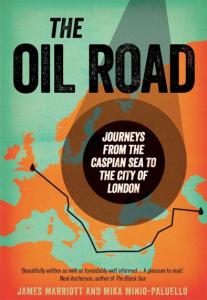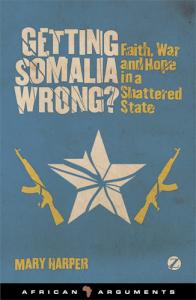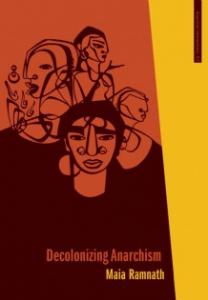Platform is a unique organisation combining art, activism, research, and education. Based in London, for over a decade it has been exploring the multi-dimensional reach of the oil industry into society, a ‘Carbon Web’ that encompasses governments, giant oil companies, banks, and a myriad other organisations, from law firms to universities, NGOs to cultural institutions. Written by two members of Platform, The Oil Road is an important component of this project, focussing on the story of how…
Global south
The dominant view of Somalia today is of a failed state riven by war, terrorism, piracy, poverty and hunger.
Mary Harper, a BBC journalist who has been reporting from Somalia since 1991, argues these images and labels act as a barrier to a more nuanced and deeper understanding of the country.
Citing numerous Somali voices, Harper maintains that continual conflict and crisis have forced Somalis to invent surprisingly workable and resilient alternative political and economic…
Over 700 boats laid 'siege' to the Kudankulam nuclear power plant in Tamil Nadu, India on 8 October, in the latest demonstration by the People's Movement Against Nuclear Energy (PMANE; for background, see PN 2550).
PMANE is demanding the withdrawal of police from local villages (police killed one protester in September), the…
In recent years, English-language histories of anarchism have been paying more attention to anarchist thinkers and activists outside the West. These two books are part of that trend.
I don't really think many PN readers are going to fork out for Anarchism and Syndicalism in the Colonial and Postcolonial World, 1870-1940; it's a very expensive academic hardback, but it is a valuable contribution.
The authors document influential anarchist movements in Argentina…
On 28 August, protests marked the AGM of mining corporation Vedanta Resources, including in central London, where the AGM was held. Thousands took part in a parallel demonstration in Goa, India, (pictured) demanding an end to operations at Sesa Goa’s Amona pig iron plant. Dongria Kond tribals whose sacred mountain is threatened by Vedanta’s mining ambitions (see PN 2520, 2528) joined protests in Odisha, India. In Zambia, activists marked the AGM by publishing a report on the contamination of…
On 10 September, local fisherman Anthony John, 44, was shot dead by Indian police while taking part in a blockade protesting against the completion of a nuclear power plant in Kudankulam in the Indian state of Tamil Nadu.
Two 1GW reactors have been built on the site and were being loaded with uranium fuel as PN went to press: the authorities plan to build a further four 1GW reactors on the site.
The protests were organised by the People’s Movement Against Nuclear…
Human rights organisations have warned that the population of nearly 200 Zapatista supporters in the Chiapas highland indigenous community of San Marcos Aviles, in Mexico, are at serious risk of violent assault and displacement. The threats made against them have increased sharply since the Mexican elections in July.
The aggressors are government supporters organised in paramilitary-style groups, heavily armed with shotguns, rifles and pistols. They are specifically threatening the…
PHOTO: Jubilee Debt Campaign
Jubilee Debt Campaign mark a surprise decision by the UK privy council, on 18 July, ruling against vulture fund FG Hemisphere, which had tried to sue the Democratic Republic of Congo’s state mining company in a Jersey court for $100 million. (FG Hemisphere bought the debt for just $3 million.) Vuture funds profit by buying cheaply and then pursuing the debts of impoverished countries.
Central America is currently the most violent region on the planet. Some of that is attributable to the drugs trade, which itself feeds on the atomisation and insecurity produced by global neoliberalism. Some of it stems from the region’s brutal and traumatic past, when state forces could commit atrocities with total impunity. But much of it is due to the attitude of the United States, which continues to look for military solutions to social issues.
As a result, the Obama…
Taesun Kwon co-founded South Korea’s radical national daily newspaper, the Hankyoreh, born of South Korea’s democracy movement in 1988. She is now executive editor of the paper, which has a circulation of over 500,000.
PN : How is the Hankyoreh different from other South Korean newspapers?
TK: There are many differences between the Hankyoreh and other newspapers in South Korea. The first difference is the birth of the Hankyoreh. The Hankyoreh was established with the help of…
Taesun Kwon was a co-founder of South Korea’s only non-corporate national daily newspaper, the Hankyoreh, born of South Korea’s democracy movement in 1988. She is now executive editor of the paper, which has a circulation of 300,000 (South Korea has a population of 49 million). Taesun Kwon will be speaking at the Rebellious Media Conference organised by Peace News, Ceasefire, the National Union of…
At a recent seminar on peace building in Africa, the question of why gender and not women was raised. What is the difference? Although I was surprised that this question came up at all, it made me realise that one makes the assumption that this question has been sufficiently dealt with and that everyone is moving on from there.
Yet, this question helped me to understand why we often remain stuck in our attempts to transform gender relations in our society. The politics of gender…
A Greenpeace-commissioned satellite map of the world released on 13 April has shown that only 10% of the world is covered by intact forest, at the same time the most valuable of these forests are being threatened by logging and farm expansion.
In Papua New Guinea (PNG), activist groups are working with local organisations to stop the destruction of the largest remaining forest in the Asia Pacific region. On 11 April activists from the Rainbow Warrior demonstrated in front of a ship…
Good news for a change from Turkey: on 9 March, gay Turkish conscientious objector Mehmet Tarhan was unexpectedly released from the military prison in Sivas, following an order by the Military Court of Appeal in Ankara. The reasons for his release remain unclear, but one possibility is that, even if finally sentenced, Mehmet Tarhan would be unlikely to serve more time in prison than he already has (he was arrested on 6 April 2005, and has spent almost a year in prison).
Mehmet Tarhan…
Disguised as a “humanitarian intervention” and giving “support to building democracy”, the second major EU military intervention in Congo began this June. As Peace News goes to press, 2,000 EU troops from 20 EU countries (plus Turkey) are being deployed in Congo, to safeguard the elections in the DRC. Officially, the EU mission (named EUFOR RD Congo) aims to support the 19,000 UN “peace keepers” already in the country.
The UN force (MONUC) became famous recently for…







